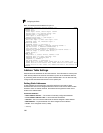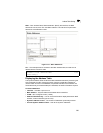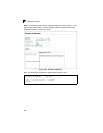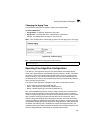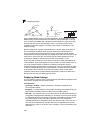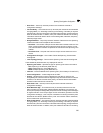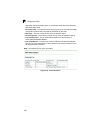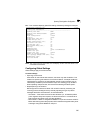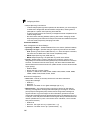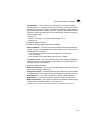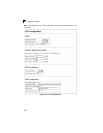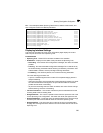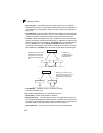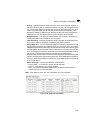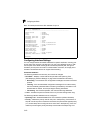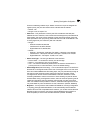
Configuring the Switch
3-96
3
• Multiple Spanning Tree Protocol
- To allow multiple spanning trees to operate over the network, you must configure
a related set of bridges with the same MSTP configuration, allowing them to
participate in a specific set of spanning tree instances.
- A spanning tree instance can exist only on bridges that have compatible VLAN
instance assignments.
- Be careful when switching between spanning tree modes. Changing modes
stops all spanning-tree instances for the previous mode and restarts the system
in the new mode, temporarily disrupting user traffic.
Command Attributes
Basic Configuration of Global Settings
• Spanning Tree State – Enables/disables STA on this switch. (Default: Enabled)
• Spanning Tree Type – Specifies the type of spanning tree used on this switch:
- STP: Spanning Tree Protocol (IEEE 802.1D); i.e., when this option is selected,
the switch will use RSTP set to STP forced compatibility mode).
- RSTP: Rapid Spanning Tree (IEEE 802.1w)
- MSTP: Multiple Spanning Tree (IEEE 802.1s); MSTP is the default.
• Priority – Bridge priority is used in selecting the root device, root port, and
designated port. The device with the highest priority becomes the STA root device.
However, if all devices have the same priority, the device with the lowest MAC
address will then become the root device. (Note that lower numeric values indicate
higher priority.)
• Default: 32768
• Range: 0-61440, in steps of 4096
• Options: 0, 4096, 8192, 12288, 16384, 20480, 24576, 28672, 32768, 36864,
40960, 45056, 49152, 53248, 57344, 61440
Root Device Configuration
• Hello Time – Interval (in seconds) at which the root device transmits a
configuration message.
• Default: 2
• Minimum: 1
• Maximum: The lower of 10 or [(Max. Message Age / 2) -1]
• Maximum Age – The maximum time (in seconds) a device can wait without
receiving a configuration message before attempting to reconfigure. All device
ports (except for designated ports) should receive configuration messages at
regular intervals. Any port that ages out STA information (provided in the last
configuration message) becomes the designated port for the attached LAN. If it is
a root port, a new root port is selected from among the device ports attached to the
network. (References to “ports” in this section mean “interfaces,” which includes
both ports and trunks.)
• Default: 20
• Minimum: The higher of 6 or [2 x (Hello Time + 1)].
• Maximum: The lower of 40 or [2 x (Forward Delay - 1)]



